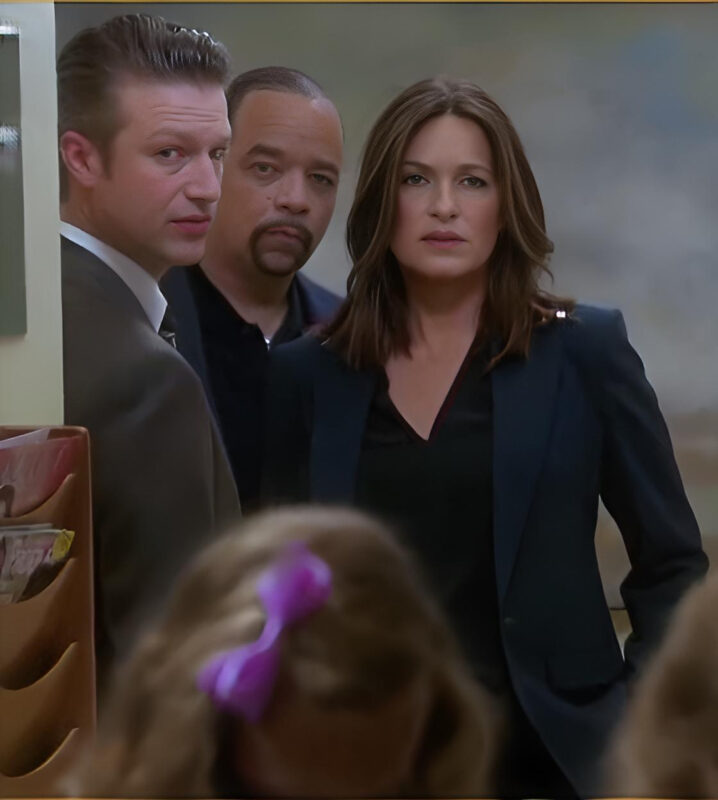The Real Reason ‘Law and Order,’ ‘SVU,’ and ‘Organized Crime’ Are No Longer New or So Boring

The “Law & Order” franchise, including its offshoots “SVU” and “Organized Crime,” once held a commanding presence on our television screens, captivating audiences with gripping stories and compelling characters. However, in recent years, many fans and critics alike have noticed a decline in the freshness and excitement of these shows. Here are the key reasons behind why these series no longer feel new or have become increasingly boring.
1. Formulaic Storytelling
One of the most significant factors contributing to the staleness of the “Law & Order” franchise is its formulaic approach to storytelling. Each episode tends to follow a predictable structure: a crime is committed, detectives investigate, suspects are questioned, and a courtroom drama unfolds. While this format was initially successful and engaging, over time, it has become repetitive and lacks the innovation needed to keep viewers hooked. Audiences crave variety and surprises, and the shows’ adherence to a rigid formula has resulted in predictability that can feel monotonous.
2. Overreliance on Procedural Elements
The franchise’s heavy reliance on procedural elements also contributes to its perceived dullness. While procedural dramas offer a certain level of comfort and reliability, they can also become tiresome when not balanced with character development and emotional depth. Early seasons of “SVU,” for instance, delved deeply into the personal lives of its main characters, creating a strong emotional connection with the audience. Recent seasons, however, have often sidelined these personal stories in favor of focusing solely on the procedural aspects, leading to a lack of character growth and emotional engagement.
3. Lack of Fresh Ideas
The longevity of the “Law & Order” franchise has led to a natural depletion of fresh ideas. After hundreds of episodes, it becomes increasingly challenging to come up with new, original storylines that can surprise and engage viewers. The franchise has explored a wide range of crimes and legal issues, and the constant need to produce new content can result in recycled plots and less innovative storytelling. This scarcity of fresh ideas has inevitably contributed to the shows feeling repetitive and uninspired.
4. Changing Audience Preferences
Television audiences’ tastes and preferences have evolved significantly over the years. With the advent of streaming services and the rise of high-quality, serialized dramas, viewers have become accustomed to more complex and layered storytelling. Shows like “Breaking Bad,” “Game of Thrones,” and “The Crown” have set a new standard for narrative depth and character development. In contrast, the procedural nature of “Law & Order” may seem outdated and simplistic to modern audiences who now expect more intricate and emotionally resonant narratives.
5. Franchise Fatigue
Franchise fatigue is a phenomenon that affects even the most beloved series. When a franchise has been on the air for decades, as is the case with “Law & Order” and its spinoffs, it is natural for audiences to experience fatigue. The initial excitement and novelty wear off, and what was once fresh and groundbreaking can start to feel tired and overextended. Despite efforts to introduce new characters and spin-off series, the franchise’s core elements remain largely unchanged, contributing to a sense of redundancy.
6. Competition from Other Shows
The television landscape has become increasingly competitive, with numerous high-quality shows vying for viewers’ attention. Crime dramas, in particular, have proliferated, with many offering unique twists and innovative storytelling techniques. “Law & Order,” “SVU,” and “Organized Crime” now face stiff competition from newer, edgier shows that push the boundaries of the genre. This increased competition has made it harder for the franchise to stand out and maintain its former level of excitement and engagement.
In conclusion, the decline in the freshness and excitement of “Law & Order,” “SVU,” and “Organized Crime” can be attributed to a combination of formulaic storytelling, an overreliance on procedural elements, a lack of fresh ideas, changing audience preferences, franchise fatigue, and increased competition from other shows. While the franchise remains iconic and influential, it will need to innovate and adapt to regain the level of intrigue and engagement it once commanded.





